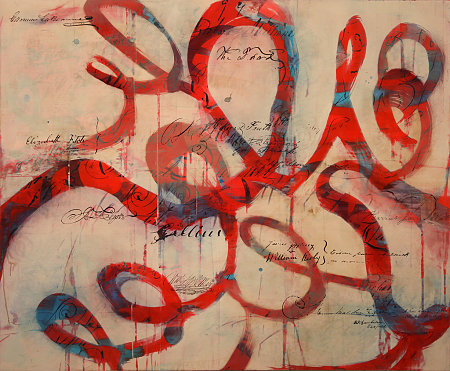
A Chance Conversation
*
We frequently speak of chance as being causative, an error that my gambling friends warn me against; there is no force operating more strongly on the coin to turn up heads after it has successively come up tails three times, four times, five times. Yet chance intervenes so often in what seems a mechanical thread of contingency that it affects all of us, however humble our circumstances. In fact, the existence of our species itself highlights the tenuousness of the thread of contingency. This tenuousness forms a thread of the argument in Stephen Jay Gould’s book Wonderful Life: The Burgess Shale and the Nature of History, written in 1989. Gould describes the tiny Cambrian Period animals found in the Burgess Shale, a fossil-rich rock in the Colorado Rockies. Gould believes that the lesson of the Burgess Shale fauna, and also of the Luis Alvarez hypothesis—now generally accepted—that the great Cretaceous-Tertiary extinction resulted from the impact of an asteroid, is that history is contingent, resting on “an unpredictable sequence of antecedent states, where any major change in any step of the sequence would have altered the final result.” All of the biologists and paleontologists who have recently examined the Burgess Shale fauna have acknowledged that “a contemporary observer could not have selected the organisms destined for success” in the group, and that, in Gould’s words, the survival process was more like a lottery than a directed process.
Gould’s frequent image is “replaying the tape”—that is, going back to some point such as the Cambrian Period and starting again. His contention is that the animals that survived would be different and the likelihood of the evolution of human intelligence extremely small. Moreover, he says, the very late appearance of human evolution, halfway through the cycle of our sun, suggests that if it had taken even twice as long, let alone ten or twenty times, it would have been too late. His statement about humans and contingency is “Homo sapiens is an entity, not a tendency,” and far less an inevitability.
Our usual picture of natural selection, which I believe we form as an accommodation to the less thinkable parts of chance, is that the adapted creature survives and reproduces and therefore is preserved. But what if the adapted creatures, thriving in their little world, suddenly have a wall of mud fall on them, extinguishing them and literally flattening them as if they’d been run over by a truck? Their deaths—the end of their possibility of surviving to pass on their adaptation—are a part of natural selection we don’t like to think about. Such a minor catastrophe created the Burgess Shale fossils. The great Cretaceous-Tertiary extinction took out a lot of well-adapted reptilian species and gave some little mammals a chance their mutations hadn’t earned them. They survived Earth’s equivalent of being hit by a truck, lived through the sunless winter caused by the impact’s clouds of dust, and found themselves in a world with fewer predators and more room to reproduce and, of course, mutate.
We want things to be neater than this, with effects traceable to their causes, without random interruptions. We have what Wallace Stevens called a “rage for order.” There is order, but it is oblivious to human concerns—or those of any other species, for that matter. Indeed, matter is the right word; the ineluctable is only at the level of matter and its behavior in what we call—invoking human institutions even in behavior that ignores the human—“laws” or “rules.” The search for first causes leads us back, finally, to protons and other particles, gravity, electromagnetism, strong and weak forces.
*
My wife’s favorite aunt married a geologist, a Spaniard who grew up in Caracas after his family was exiled during the Spanish Civil War. One day on his patio in the hills above Austin, Amos began telling me how he came to be a geologist. I realized that it was a story about the course of his life, including his marriage, and that, had it not gone this way, he would have been telling another story to quite another nephew-in-law.
